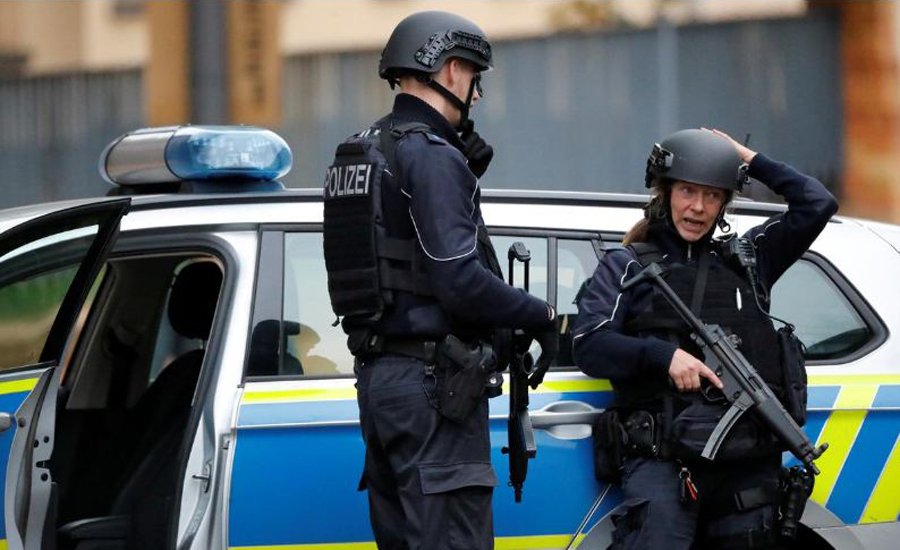Two killed in shooting at synagogue in Germany, suspects flee in hijacked car

HALLE, Germany (Reuters) - Two people were killed in shooting attacks on a synagogue and a nearby kebab shop in the eastern German city of Halle on Wednesday and one suspect was arrested, but two others fled in a hijacked a car, officials said.
The violence occurred on Yom Kippur, the holiest day of the calendar in Judaism when Jews fast, seeking atonement. Broadcaster n-tv reported that two people were seriously injured in the attack, in addition to the two killed.
The two suspects on the loose headed out on a motorway that leads to Munich in the country’s south, according to the mayor of the town of Landsberg, adjacent to Halle. Gunfire was also heard in Landsberg, Focus Online reported.
A spokeswoman for the Halle municipal government said one shooting took place in front of the synagogue on Humboldt street and its accompanying cemetery, while a second burst of gunfire targeted the kebab bistro in the city in the province of Saxony.
Max Privorozki, Halle’s Jewish community chairman, described how a gunman tried to shoot his way into the city’s synagogue.
“We saw via the camera system at our synagogue that a heavily-armed perpetrator with a steel helmet and a gun tried to shoot open our doors,” he told the Stuttgarter Zeitung newspaper. “The man looked like he was from the special forces...But our doors held.”
“We barricaded the doors from inside and waited for the police,” he said, adding that about 70-80 people were inside the Humboldt street synagogue celebrating Yom Kippur.
German Chancellor Angela Merkel’s government voiced outrage over the attack on Yom Kippur and urged tougher action against anti-Semitic violence.
“That on the Day of Atonement a synagogue was shot at hits us in the heart,” Foreign Minister Heiko Maas wrote on Twitter. “We must all act against anti-Semitism in our country.”
The federal prosecutors office said it had taken over the investigation from local police, a procedural step under German law indicating suspicions of terrorism committed by political extremists.
Anti-Semitism is a particularly sensitive issue in Germany, which during World War Two was responsible for the genocide of 6 million Jews in the Nazi Holocaust. Around 200,000 Jews live today the country of around 83 million people.







